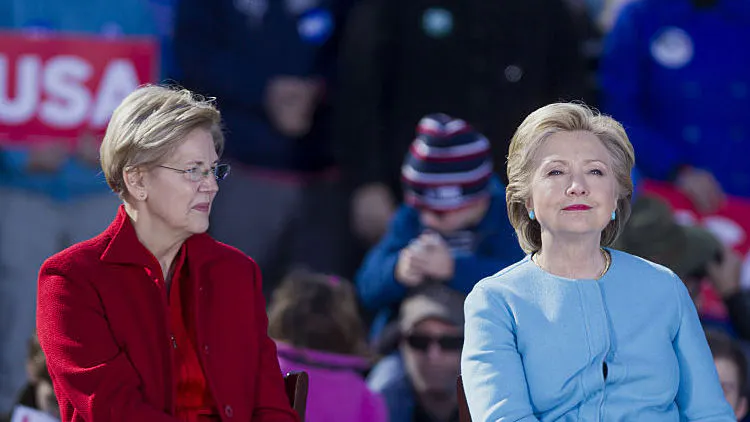Senator Elizabeth Warren (D-MA) had a major gripe with the Obama administration: The president who had promised he would be “fundamentally transforming the United States of America” had proven insufficiently radical on economic policy.
So in late 2014, Warren met with former Secretary of State Hillary Clinton, who was preparing for her second presidential run, to discuss exactly the type of people she didn’t want to see in the prospective Clinton administration. Shortly after the meeting, Warren followed up with a list of people she did want to see involved in future economic policymaking. Clinton listened.
According to an investigation conducted by Politico, the list Warren gave to the Clinton campaign consisted of potential economic policy advisors who, in similar fashion to Warren, had been highly critical of the Obama administration’s economic policy.
In particular, members of the list “shared Warren’s conviction that the Obama administration had bungled the recovery by being too close to banks and thinking about shorter-term fixes rather than using the opportunity to enact a structural overhaul of the government’s role in the economy,” reports the news outlet, which interviewed over 20 people “involved in the process” during the course of its investigation.
One member of the list, James Kwak, a law professor at the University of Connecticut, has written extensively about economics for The Atlantic, and once wrote in an article that “introductory economics can be more misleading than it is helpful.” The article was so bad that Mark Perry, an economist at the American Enterprise Institute, responded to it by saying that “law professor James Kwak makes a very ill-advised case for ignoring economic theory, logic, laws and reasoning.”
Amir Sufi, an economist and another member of the list, co-wrote the book “House of Debt” in 2014, arguing that “the economy would have rebounded” after the 2008 financial crisis “faster” with more aggressive debt forgiveness, according to the Los Angeles Times. In a review of the book, Larry Summers, a former economist for the Obama and Clinton administrations, called Sufi’s policy proposals “naive.”
The other members of the list include Simon Johnson, Joseph Stiglitz, Ganesh Sitaraman, Katie Porter, Jennifer Taub, Heather McGhee, Sheila Bair, Elise Bean, and Damon Silvers. According to Politico, Johnson, Porter, and Bean were “slated” for positions on the campaign’s transition teams, which would oversee hiring for the prospective Clinton administration.
During the course of the investigation, former Clinton campaign chairman John Podesta told Politico that Warren had “do’s and don’t’s” as far as who she wanted the Clinton campaign to hire, and that anyone who had worked for the Treasury Department or Securities and Exchange Commission under the Obama administration was “probably in trouble.” The report also notes that a Clinton campaign transition official even “half-jokingly” said that anyone who had “ever talked to Larry Summers” fell into the “don’t” pile.
In the time since, Warren has continued to draw the ire of top economists, notably saying at Thursday’s Democratic primary debate that anyone who criticizes her unprecedented plans for wealth confiscation is “just wrong.”
The New York Times reported last month that a “preliminary projection of Senator Elizabeth Warren’s proposed wealth tax said a drop in investment by the richest Americans would crimp growth.”
The Penn Wharton Budget Model estimated that wealthy Americans would consume more and save and invest less in order to avoid accumulating wealth that would be subject to the tax. The resulting drop in investment reduces economic growth.
“The wealth tax shrinks the economy because saving is more expensive,” said Richard Prisinzano, Penn Wharton’s director of policy analysis. “The results also suggest that the negative effect of the tax increases as the tax rate increases.”
Warren is currently in third place in the 2020 Democratic Party presidential primary, according to the RealClearPolitics polling average.

.png)
.png)

